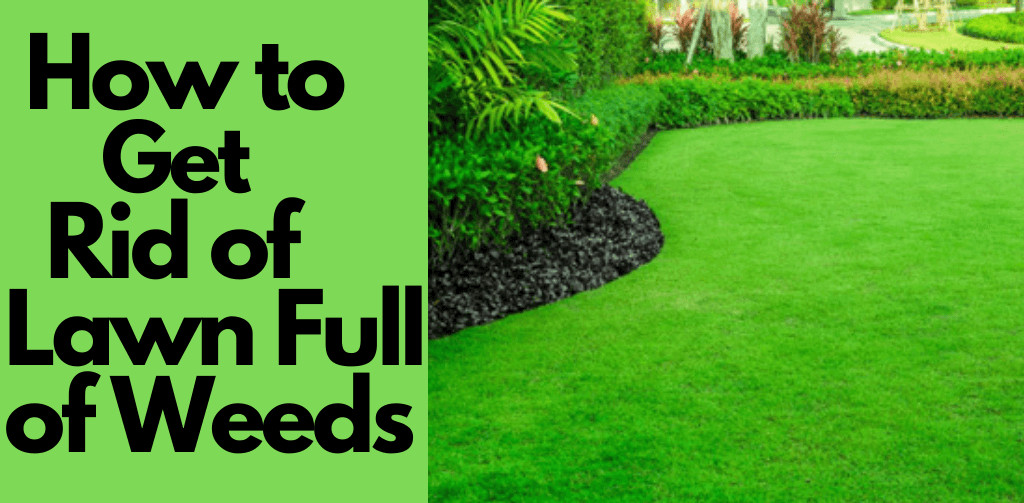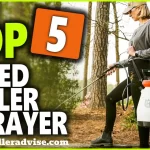Working of Weed Killer
Everyone wants to maintain the charm of the lawn and garden to create a better impression. However, we cannot cut these plants because their roots are still underground, and the plants will grow again, so we need to use a weed killer to eradicate these kinds of plants. Before going into depth, you may need to understand the types of weeds and weed killers, whether they are suitable or not for your lawn and garden according to the nature of weeds. Many people want to know the actual process of weeding and ask questions like how does weed killers works or do a weed killer kill the grass? We have covered these questions in this post, including all the types of weeds and weed killers and how long weed killer takes to work.
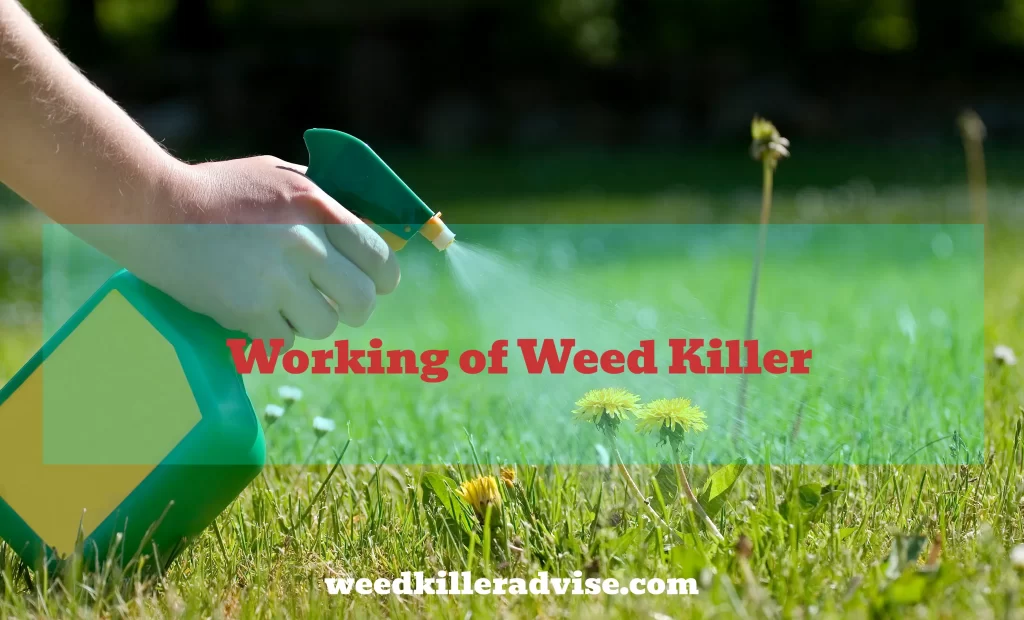
About Weeds
The term weed is derived from the old English word, “weudą” which means abundant plant growth such as tobacco and seaweeds. Weedkiller (also known as herbicides) is a chemical substance used to eliminate unwanted growing plants from your property that are difficult to eradicate. It is categorized into different types depending upon the nature, origin, and structure of the weeds.
Types of Weed Killer and Working Against Weeds
Herbicide is the final solution for weed control which genuinely works better to eradicate the unwanted plants and herbs from your lawn or garden. It is a better idea to research weed killers to achieve good results. Herbicides are specifically engineered to potentially target the kind of weeds and unwanted herbs.
No matter how hard the weeding work you are trying to deal with, there is a herbicide similar to this work and will do what you need it for. These are categorized into some types that are mentioned below.
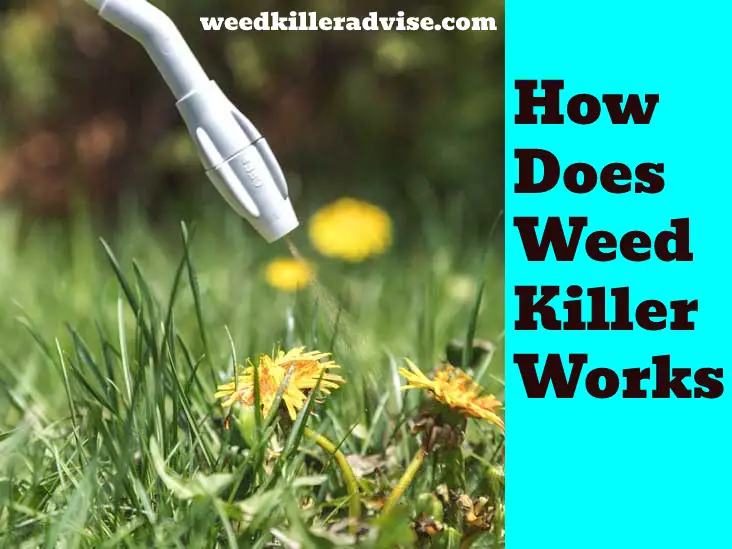
1. Systemic Weed Killers
Such weed killers go in-depth of the ground and break down the weed roots and their apical meristem system.
This is the perfect solution for the breakdown of perennial plants (that live for several years) and weeds. Unlike other weed killers, Systemic weed killer works for all kinds of plants, weeds, and herbs, and this specific virtue makes it valuable for those who want to remove unnecessary plants from their gardens.
Systemic herbicides start affecting after a week, while it takes 2 or 3 weeks to completely eradicate the plant. This is quite a long and time-consuming process because it is not a selective herbicide or made for any specific plant or weed, so it all depends upon the plant’s nature, root structure, and size to increase or decrease the time limit of their eradication. Systemic herbicide is the weed killer that actually works.
Here is the best systematic weed killer
- Roundup Super Concentrate Weed & Grass Killer is a great value for large areas
- Rainproof in 30 minutes
- Weeds usually yellow and wilt as fast as 2-4 days
- For use around flowers, shrubs, and trees; on patios, walkways, driveways, gravel areas, and mulch beds; along fences and foundations; in large areas for lawn replacements or garden plot preparation
- Easily apply with a Roundup brand tank sprayer
2. Residual Weed Killers
The residual herbicides work by blocking the weeds in the ground, which prevents the weeds from growing, and this blockage prevents the weeds from forming in the first place. This weed killer doesn’t eradicate the whole plant, including its roots; as a result, the plant may grow again next season. Plants infected with this herb can take longer to remove, about a month or less.
After the treatment, you can not dig the treated area again as it will result in reducing the long-lasting control. Weeding is hard and backache work, so that is why chemical herbicides are the perfect solution and effective way to get rid of these weeds; otherwise, it is hard to remove the perennial weeds manually.
For the best residual weed killer check this product
3. Selective Lawn Weed Killers
This is the most common type used in weeding the plants that eradicate or remove only specific species. This type of weed is mostly used for large plants and weeds having broad leaves. They are suitable for large lawn areas and generally do not damage the grass. This does not mean that it will not harm other plants in the vicinity as a particular herb. If you use it too much, it will definitely affect the plants.
Selective herbicides take 3 to 5 weeks for the removal of specific plants, which is much more time than that of others like systemic and residual weed killers. There can be some conditions where the eradication period of a plant can be increased or decreased. These conditions may be an actively growing weed, weather changes, nature of the soil, and weed size.
For the best selective weed killer check this product
- Use Sites: Commercial & Residential Turfgrass, Golf Courses, Sports Fields and Sod Farms
- Effective Against: Crabgrass, Clover, Foxtail, Dandelion, Black Medic, English Daisy, Morningglory, Dollarweed, Speedwell, Torpedograss, Kikuyugrass, Barnyardgrass, Bindweed, Signalgrass, Violet
- Active Ingredient: Quinclorac 75%
4. Non-selective Weed Killers
As you may have guessed with the name of these herbicides are the most effective weed killers used for the eradication of hardscape, parks, gardens, and walking-side weeds. These are also known as broad-spectrum herbicides, which means they can most effectively all the plants where they are sprayed. They act opposite to selective herbicides.
For the best Non-Selective weed killer check try this product
- POISON IVY KILLER: Plus it kills Kudzu, Poison Oak, Blackberry and 75+ types of listed weeds and brush
- KILLS DOWN TO THE ROOT: Kills listed weeds above and the root below
- RESULTS: Start seeing visual results in 1- 6 weeks
- RAINPROOF PROTECTION: Rainproof in 4 hours
You can also check Best Weed Killer for Lawns
5. Contact Weedkillers
As the name recommends, contact herbicides work to wipe out weeds at whatever point they come into contact with them, paying little heed to their sort. Here, the plant’s stomata (little openings) devour the applied herbicide, making it be eradicated. Notwithstanding, altogether, for contact weed killers to be compelling, the stomata should be open. These possibly open when the plant is effectively developing and for the duration of the day while photosynthesis is occurring.
As soon as they are sprayed on any plant, start working to eradicate that plant, including its underground roots. These take less time for the removal of plants than the discussed above categories and will be the perfect weeding solution for those who ask questions like how long it takes for weeds to die after spraying.
For best contact weed killer check this product
- Vinegar Weed & Grass Killer is a quick-acting, non-selective contact herbicide. Use on crabgrass, clover, dandelions, and ground ivy.
- Safe to use for residential, commercial, industrial and agricultural application. Apply where weeds and grass are not wanted. Use on driveways, sidewalks, concrete, animal enclosures, mulch beds, pavers, flower beds, parking lots, barnyards, fence rows and roadways.
- This product is concentrated and is safe when used according to label directions. Once dry, areas where application was made can be used by pets and children.
- Weed Control For Organic Production- This product is a contact herbicide containing an organic acid for which the residues degrade promptly in the soil. Foliar contact results in rapid desiccation and control of annual weeds and grasses. Vinegar Weed & Grass Killer may be applied up to two days before harvest.
- This product is a great alternative to herbicides that contain glyphosate.
Types of Weeds and their Characteristics
Before you choose a herbicide, you have to understand what kind of weeds you have in your home, lawn, and garden that you are going to eradicate. Weed killers have different chemical structures and are categorized into many types depending upon the nature of weeds that are mentioned below.
Ragweed:There are two types of ragweed i.e. common ragweed and giant ragweed. Both of these weeds are similar to each with a slight difference. Common ragweeds are smaller in size than giant weeds and can be a cause of high fever. Giant ragweed may have a size up to 15 feet tall with all of its roots and branches and can be a cause of serious allergy.
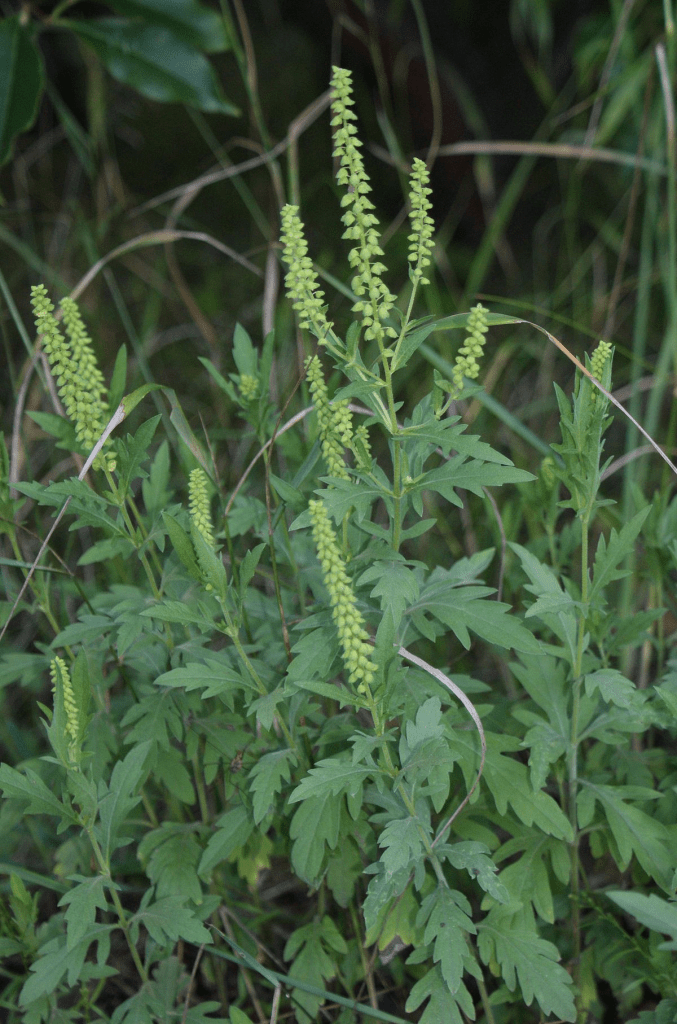
Curly dock weeds are also known as yellow docks because of their light yellowish colour in leaves. It can be used for treating other weeds in the garden such as stinging nettle, which is a weedy perennial plant, while its overuse as a home remedy can be toxic. Once the flowers are dry and brown, they stay in place, making it easier to identify the plants while blooms occur in clusters in the upper part of the plant in the form of multiple long and slender flower stalks.

Hedge Bindweed has a very attractive bloom, which is like the splendour of the morning, which can be white or pink and can have a pleasant scent but it is not a harmless weed. They grow very fast and let the roots grab the ground. If you want to eradicate this kind of weed you need to use a selective weed killer.

With a number of names, like creeping charlie ground ivy is an evergreen creeper of the mint family and a common lawn weed. It has pretty leaves and flowers, and when you want to mow the grass, it gives off a pleasant scent. It also can be used in the medical field for the treatment of allergies and other specific diseases.

Stinging nettle weed has unostentatious flowers. However, if you have bad luck, you’ll smell a bad stink by paying close attention to its barbs! The cramp that these weeds may cause seems to contradict the fact that the stinging nettle is consumable. But stinging nets are young leaves.
Precautions to Use Weed Killers
Weed killers are the most harmful chemical liquids, so you need to read the guide on how to use weed killers to protect your body and other priceless plants.
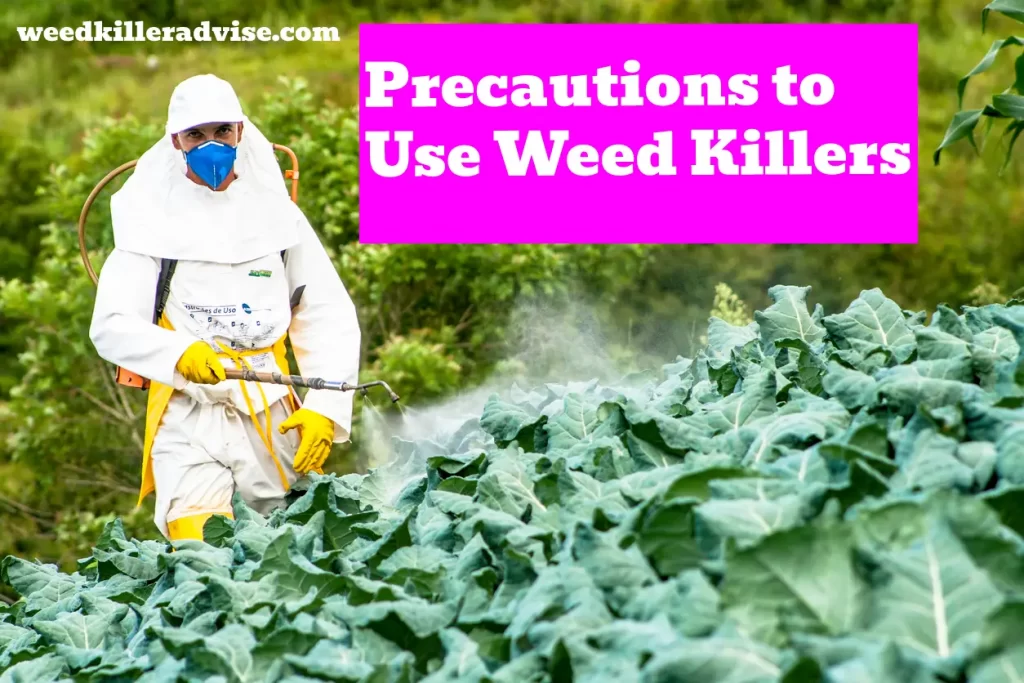
Final Verdicts
Weed killers or herbicides are the chemical substance and liquids used to eradicate unnecessary plants. We hope now you understand how does weed killer work. All weed killers work according to their specific categories. Some herbicides may take a long time for the removal of weeds. If you want to remove unnecessary plants from your lawn or garden, you need to study the above-discussed types of weeds and weed killers and how do herbicides work; then you may come to a solution that will be better for you and your plants because you can’t choose any weed killer before knowing the type of your target weed.
You just have to be more discriminating with the help you render toward other people. Note how different the products are and choose the best option for you and your garden.

Donald David is a Botanist who knows well about different types of weeds and how these are used to make medicines. He also knows well that sometimes weeds are not good at your lawn and create huge damages to favorite plants and animals. So, he aimed to describe weed killer products.



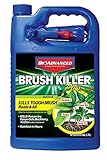
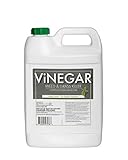
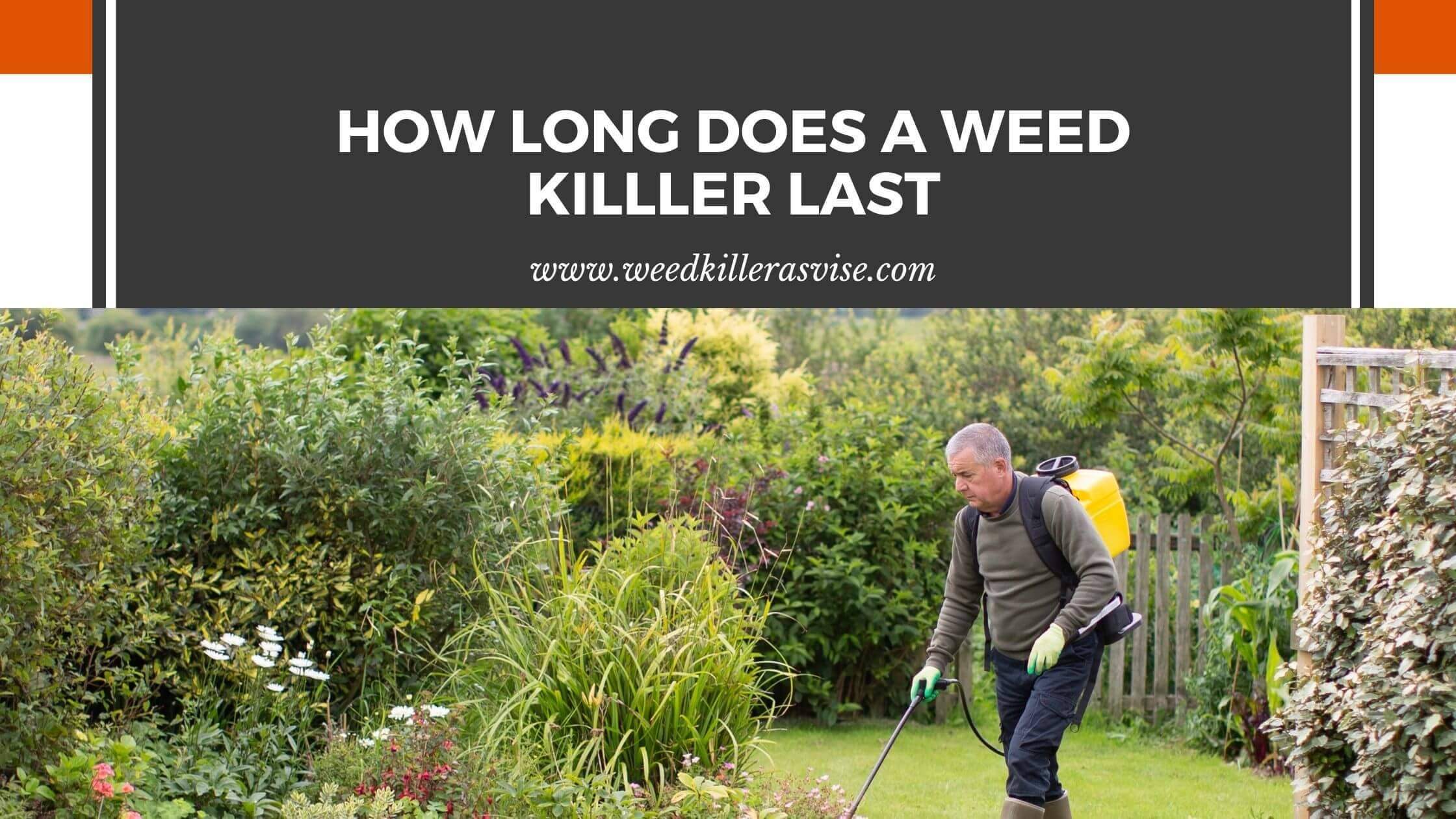
![Best Weed Killers UK [2024 Reviews & Guide] – Weed Killer Advise Best Weed Killers UK [2022 Reviews & Guide] – Weed Killer Advise](https://weedkilleradvise.com/wp-content/uploads/2020/06/best-weed-killer-150x150.webp)
